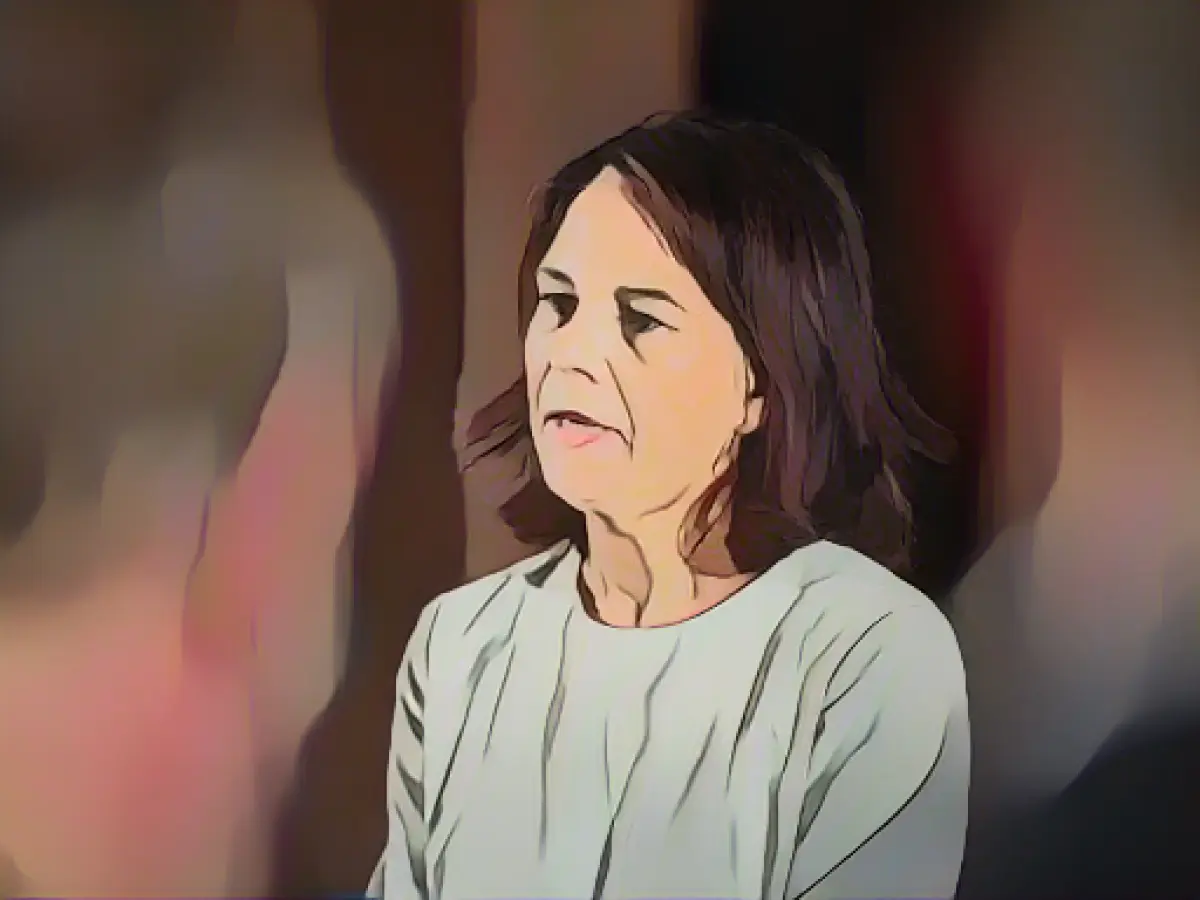Baerbock: OSCE is a piece of the puzzle for security in Europe
In view of Moscow's blockade, Foreign Minister Annalena Baerbock has called for the Organization for Security and Co-operation in Europe (OSCE) to remain operational.
If the OSCE is to continue to provide security for the 1.3 billion people in its 57 member states, "we must also give it the tools and the pilots to ensure that it remains reasonably operational and can continue - even in rough weather", said the Green politician before her departure for the annual OSCE ministerial meeting.
In addition to Baerbock, around 40 countries wanted to be represented at ministerial level at the two-day meeting of the 57 OSCE states in the North Macedonian capital Skopje.
Like Baerbock, US Secretary of State Antony Blinken attended a dinner hosted by the North Macedonian hosts on Wednesday before traveling on to Israel. Neither Russia's chief diplomat Sergey Lavrov nor Moscow's ally Belarus were invited to the dinner. North Macedonia currently holds the chairmanship of the OSCE. It was eagerly awaited whether Lavrov would adhere strictly to Russia's blockade of the OSCE at the conference, which lasts until Friday, or whether he would take a more constructive stance.
Because of Lavrov: Kuleba and Baltic ministers stay away
The most important topic of the conference is Russia's war of aggression against Ukraine, which has been going on for almost two years. The Ukrainian Foreign Minister Dmytro Kuleba and his colleagues from the Baltic states Estonia, Latvia and Lithuania wanted to stay away from the consultations in protest against Lavrov's presence. At the previous annual meeting in Lodz, Poland had refused Lavrov entry, citing EU sanctions. North Macedonia, on the other hand, is now allowing him to attend.
Baerbock criticized Russia's President Vladimir Putin for trying to separate the security anchor OSCE from its foundations for more than 650 days. "Despite this massive headwind, we have been able to preserve the OSCE as a central piece of the puzzle of our security architecture in Europe." With pragmatism, it was possible to save many projects that were on the brink of collapse due to the lack of a regular OSCE budget - "thanks to special contributions, especially from Germany and friends like Japan". She said she was glad to have "such an experienced diplomat and strategist at the head of the OSCE" in the person of Helga Schmid from Germany as Secretary General.
In a statement, Kuleba referred to Russia's veto policy in the OSCE and the resulting serious crisis in the organization. The OSCE was created to reduce tensions between East and West in Europe.
Russia blocks important decisions
At the meeting in Skopje, important personnel decisions are pending that have so far been blocked by Russia. It remains to be seen whether the terms of office of Secretary-General Schmid and the OSCE representatives for democracy, media freedom and minorities will be extended. Schmid and her three colleagues would otherwise have to vacate their posts at the beginning of December. It seemed conceivable that the terms of office could be extended for just one year rather than the usual three. For Germany and other Western countries, it was important that the personnel package was not cut.
In the OSCE, decisions can only be made with the consensus of all 57 member states. Russia's veto policy prevented the Baltic NATO state Estonia from taking over the OSCE chairmanship for 2024. A diplomatic agreement on the neutral state of Malta was only reached on Monday. The compromise solution is to be formally approved in Skopje.
Other states are keeping the OSCE alive
Russia has also blocked the OSCE budget and ensured the end of official observer and assistance missions in Ukraine. In 2021, the OSCE budget amounted to around 138 million euros. However, support from other countries has kept the organization's work going - including in Ukraine, where projects to clear landmines, repair war damage and strengthen civil rights are being implemented. Washington's OSCE Ambassador Michael Carpenter said before the ministerial meeting: "We will not allow Russia to kill this organization."
- Annalena Baerbock emphasized the importance of the Federal Government engaging with the OSCE, stating that it serves as a crucial component in ensuring security across Europe, especially in light of international conflicts and the ongoing war in Ukraine.
- During the annual OSCE ministerial meeting in Skopje, both Baerbock and US Secretary of State Antony Blinken attended, while Russia's Foreign Minister Sergey Lavrov and Moscow's ally Belarus were not invited to a dinner hosted by the North Macedonian hosts.
- The Ukrainian Foreign Minister Dmytro Kuleba and his counterparts from the Baltic states refused to attend consultations at the conference in protest against Lavrov's presence, citing Russia's continued blockade of the OSCE and its war of aggression against Ukraine.
- Despite Russia's veto policy and blockage of important decisions within the OSCE, other member states like Germany and Japan have provided special contributions to support the organization's vital projects, keeping it alive and operational in challenging circumstances.
Source: www.dpa.com








